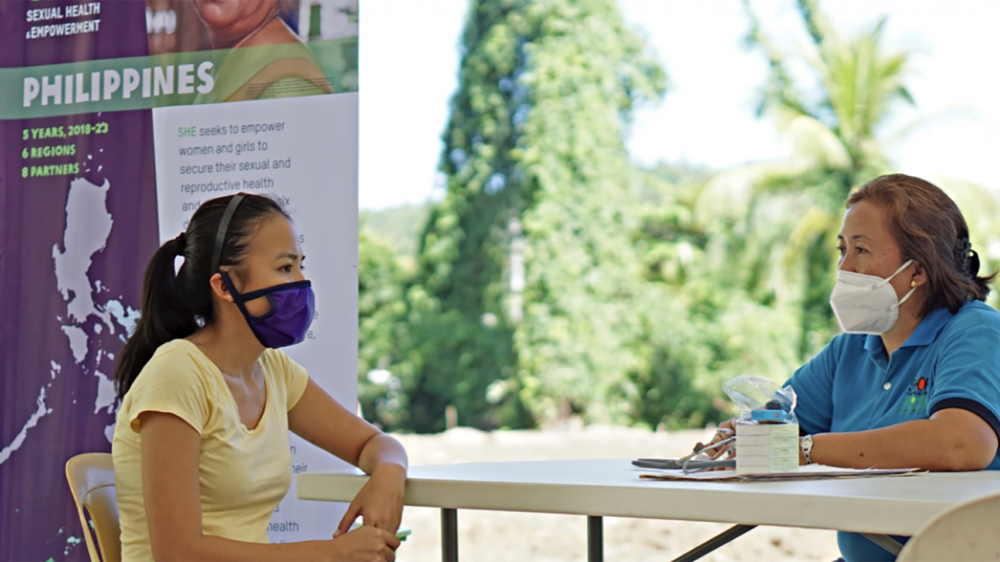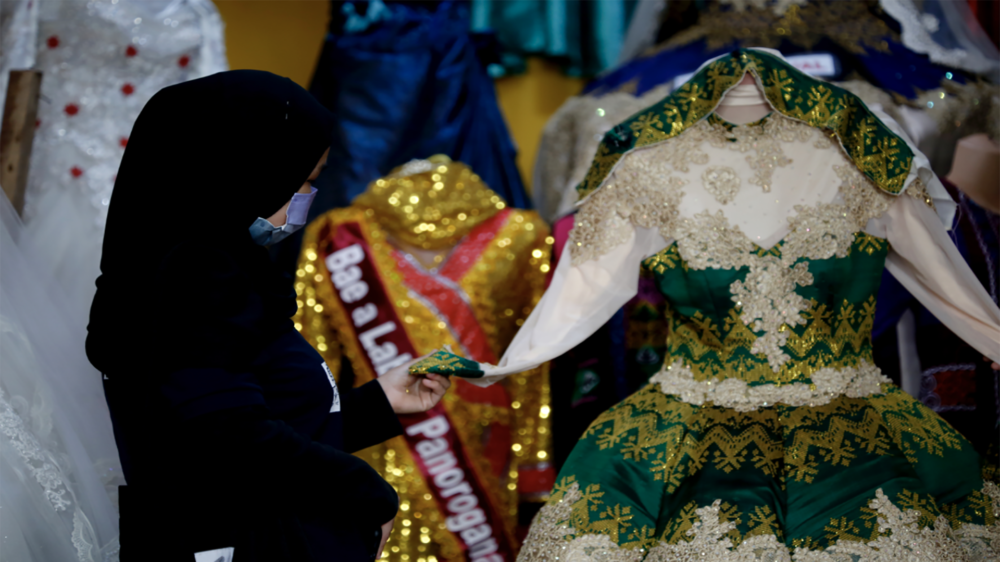In 2017, Asliah and her family lost almost everything in a huge fire that gutted their house and dozens others in Campo Ranao, Marawi City, Lanao del Sur.In 2017, Asliah and her family lost almost everything in a huge fire that gutted their house and dozens others in Campo Ranao, Marawi City, Lanao del Sur.

Just as they were recovering – having been able to build a temporary house with the help of relatives and government assistance – the Marawi Siege happened. The armed conflict between the armed group and government forces laid waste to the city.
This time, they were forced to flee.
As a single-mother with five kids, 45-year-old Asliah battled anxiety, stress and sleepless nights, not knowing how they will survive.
She had nobody to depend on as she was a single mother, having separated from her former husband who then died of an illness a few years ago.
As a young girl, Asliah dreamt of becoming a nurse to support her family. But because of poverty, she ended up joining her sister in Saudi Arabia to work as a dressmaker at the tender age of 16.
She was unaware that her parents were already planning an arranged marriage for her. The man she was promised to was more than twice her age. He was 40 years old and was also an overseas worker in Saudi Arabia. Asliah was clueless at that time but she would see the man stalking her at Filipino gatherings.
Unbeknownst to her, the marriage was officiated in Marawi while both of them were in Saudi Arabia.
Asliah, still a minor, was forced to come home to Marawi City with her new husband by her side.
“If only I was strong enough to oppose that time, but I was helpless. I was just obedient to my parents,” she recalled.
Asliah described her marriage as “difficult,” especially since she was living with a “strange man” she knew nothing of. It was only when they got married that she got to know him. It was also only then that she learned that the man already had a family and that she was the second wife.
Unsurprisingly, they had a lot of misunderstandings, resulting in their separation.
“I felt so disgusted that time,” she said. “So I promised to myself, this practice will never happen to my daughters or to my son.”
There are an estimated 726,000 child brides in the Philippines, making it the 12th country with the highest number of child marriage cases in the world. According to the United Nations Population Fund (UNFPA), 1 in 6 girls in the Philippines will get married before turning 18. Of that number, over a quarter experiencing domestic violence and abuse. (Reference: https://philippines.oxfam.org/latest/blogs/girls-not-brides-%E2%80%93-we…)
According to an Oxfam International survey on child marriage conducted in 2016, 51% or respondents in Lanao Del Sur had gone through arranged marriages, compared to 22% in the nearby province of Maguindanao. It also showed that 14% of female respondents from Lanao Del Sur gave their full consent to the marriage, while for males, the figure is much higher at 89%.
Child marriage deprives many girls of their right to education or the opportunity to grow and develop to their full potential. Despite not being old enough to take on the tasks of motherhood, many child brides like Asliah are forced to give up their studies or their careers to tend to house work or child rearing.
This is why when Asliah separated with her husband, she was ill-equipped to support her family. She was dependent on her meager income in dressmaking, having learned the trade informally.
Fortunately, Asliah received formal training on dress making through an organization of Maranao women dressmakers. The organization, received start-up capital for their equipment and dressmaking materials as part of the Global Affairs Canada-supported Creating Spaces Project implemented by Oxfam, Al-Mujaadila Women’s Association, UnYPhil-Women, Philippine Business for Social Progress and Philippine legislators’ Committee on Population and Development. The project seeks to reduce cases of violence against women and girls such as child marriage.
As of this writing, a proposed law completely banning child marriage in the Philippines is awaiting the President’s signature.
Oxfam believes that changes in laws and practices will only be sustainable when accompanied by shifts in personal beliefs and attitudes. Besides community dialogues and skills training for women, the Creating Spaces Project also contributes to ongoing efforts to improve reproductive sexual and health services in the Bangsamoro region.
Asliah and other mothers in Lanao Del Sur now actively campaign in schools and health centers.
“Since I joined this project, I felt lighter and free from the pains I held unto for years. I am hoping we can make things better for the benefit of the next generation,” she said. ###





